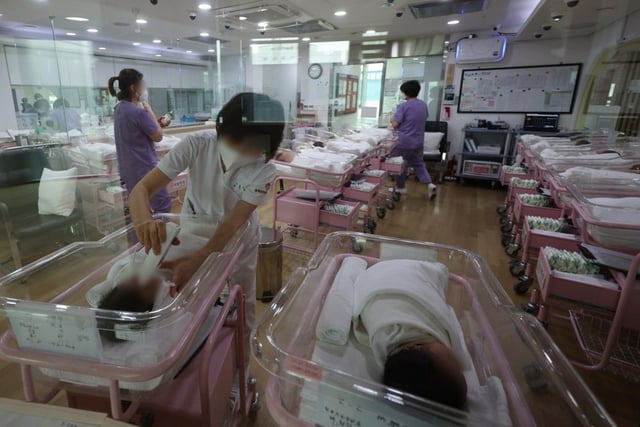Overview
- South Korea recorded a 10.1% year-on-year increase in births for September 2024, the largest monthly rise since January 2011.
- The country's total fertility rate is projected to reach 0.74 for 2024, marking its first increase since 2015, though still far below the 2.1 replacement level.
- Officials attribute the rise to a post-pandemic surge in marriages, which have increased for five consecutive months.
- Government measures, including financial incentives, enhanced parental leave, and workplace reforms, aim to address the ongoing demographic crisis.
- Despite the uptick in births, South Korea's population is expected to continue declining as deaths outpace births, with long-term projections forecasting significant population shrinkage by 2072.



